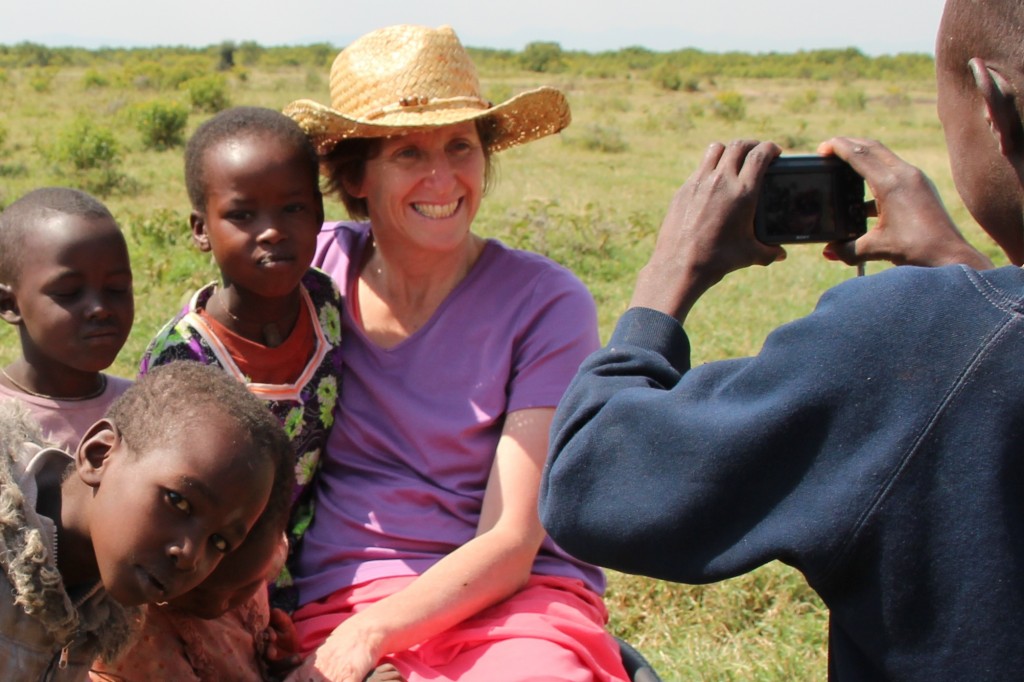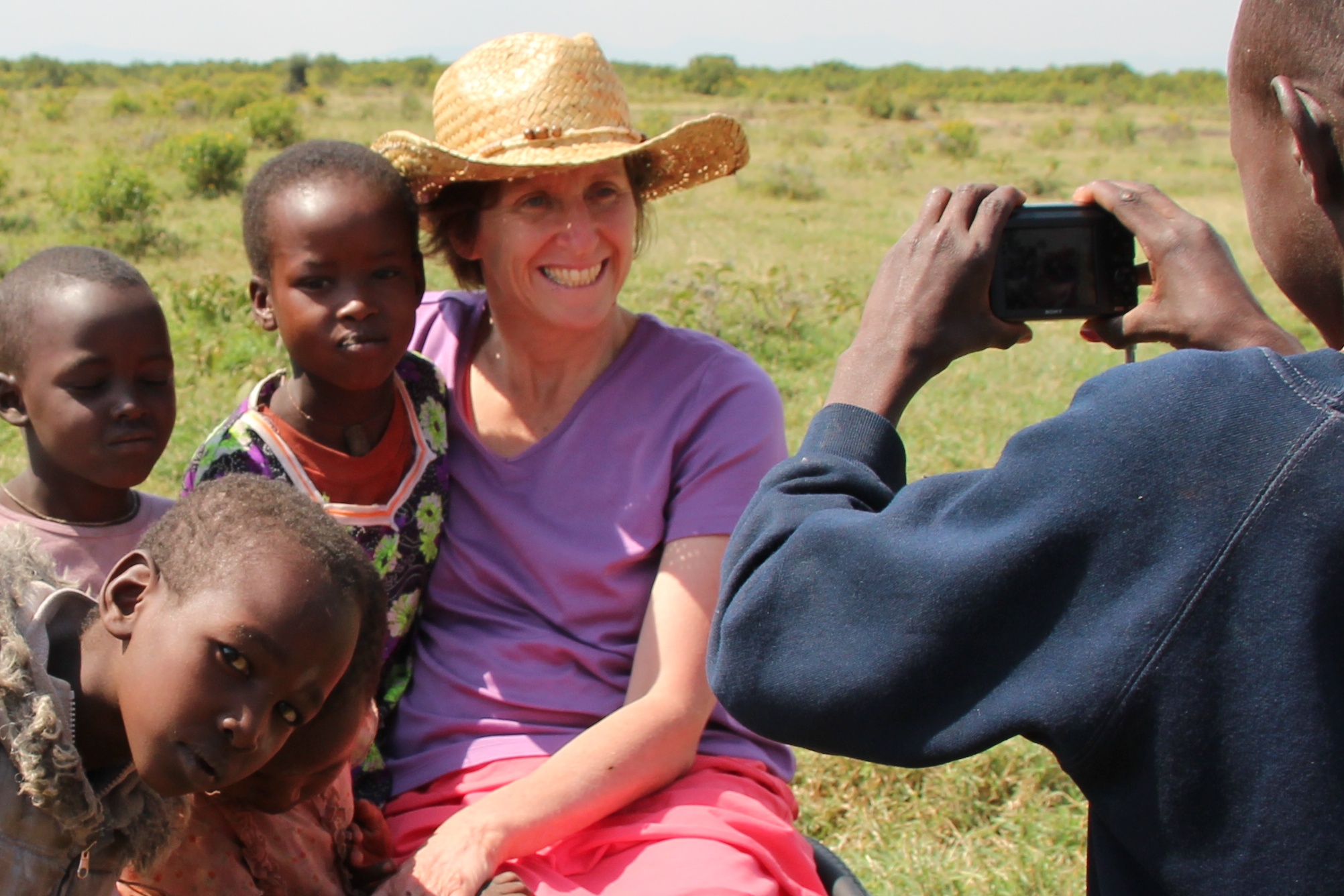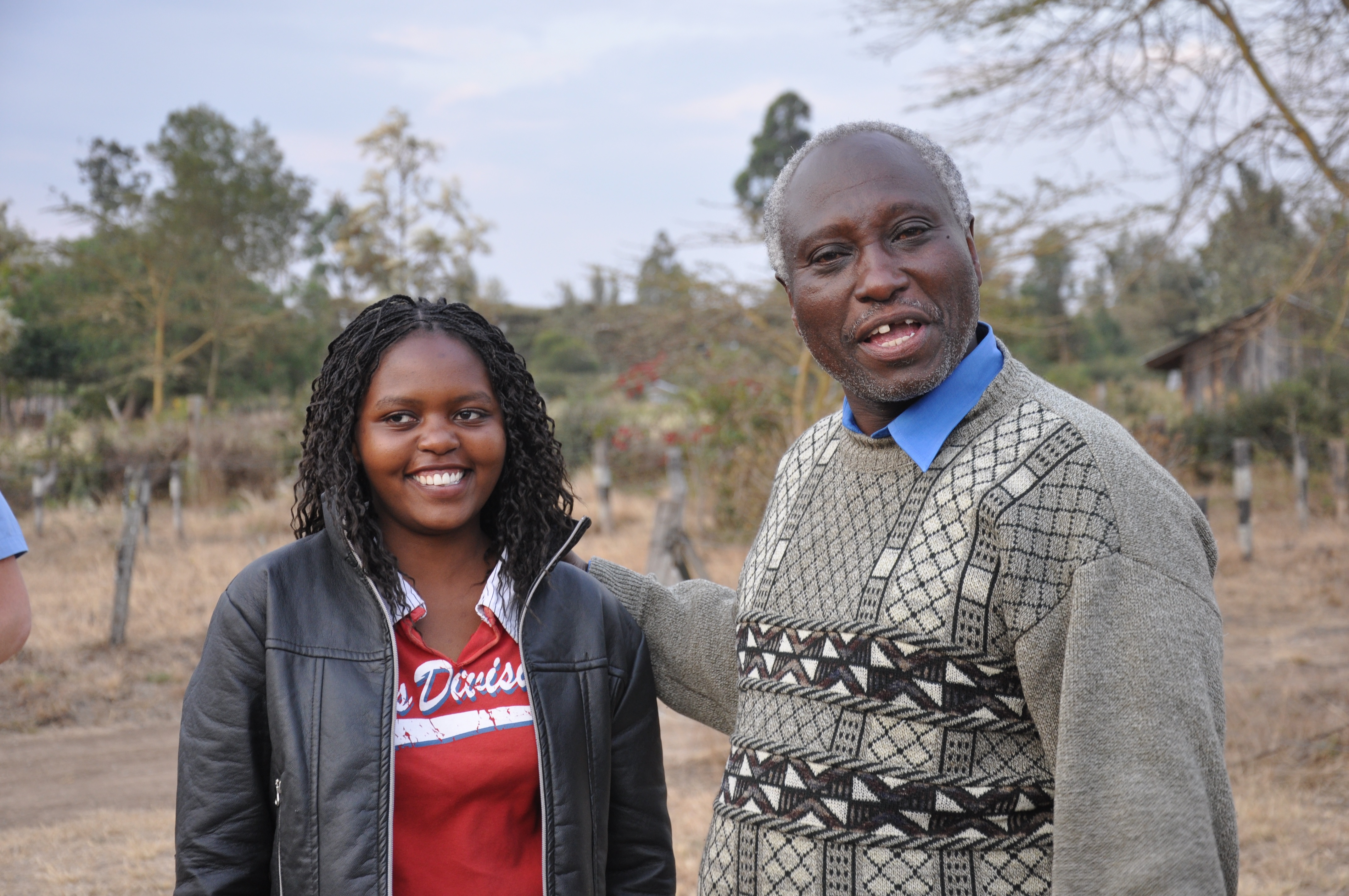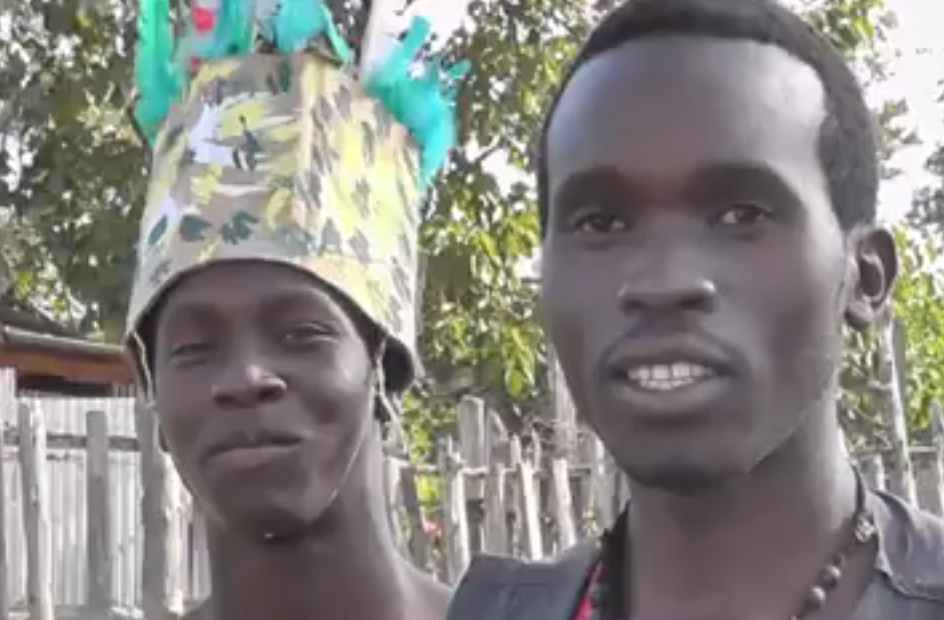
In 1995, while at the Jane Goodall chimpanzee orphanage in Burundi, Gillian La Prairie was researching for her PhD thesis. Burundi was experiencing a civil war, which meant the chimpanzees had to be translocated to a safe location. Even though chimps are not native to Kenya, the Ol Pejeta Conservancy (OPC), in collaboration with the Kenyan Wildlife Service, agreed to start a Chimpanzee sanctuary to provide a safe shelter for these chimps. One group of chimps had already been moved to OPC when the Burundi team, including Gillian, relocated the remaining chimps to their new home. Gillian remained at OPC for the next 6 years.
In the late 1990’s, Ol Pejeta moved away from being a predominantly livestock business to one that was more focused on wildlife conservation and tourism. Even though OPC worked hard to contain the wildlife, human-wildlife conflict still existed in the area. OPC realized the importance of community outreach in order to get local communities on side with seeing the value of wildlife. They focused their efforts on improving infrastructure (roads, buildings, water wells), providing health and educational opportunities to local people. OPC planned to provide bursaries for secondary students, but there was no funding in place, yet…..
Then in 2005, Jim Sparks music/choir teacher at Langley Fine Arts School (LFAS) invited Gillian to share her story with his school community. Gillian spoke about OPC, the animals, the children and the need for education in Kenya. She invited the audience to help. A group of teachers and students enthusiastically responded and created a school-based club called Project Kenya Sister Schools (PKSS). By Christmas, LFAS had raised over $17,000 for PKSS. These funds helped initiate the current successful scholarship program, the first recipient being Winnie Wamuyu. The project expanded to include other Canadian schools.
In 2014, PKSS was re-named PA-MOJA, meaning “together” in Swahili. All of the fundraising goes to provide scholarships for students who live around the Ol Pejeta Conservancy. As a result, there is stronger local support for wildlife. Communities are now more likely to support conservation work and even help Ol Pejeta combat poaching of animals when they see OPC providing scholarships for their local students.
The initial goal of founding members, Neil Bryson, Penny Carnrite, Silvia Knittel, Jim Sparks, and Donna Usher, was to raise money to help educate children in the communities surrounding the Conservancy. The project initially focused on building classrooms, buying uniforms and providing bursaries for families who could not afford school fees.
PA-MOJA hoped that by working with the Ol Pejeta Conservancy, they could provide financial and cultural support which would strengthen the goodwill between the conservancy and the community members.
The result has been stronger local support for wildlife; the locals are less likely to poach animals such as elephants and rhinos when they see that the conservancy is building classrooms and their children are receiving bursaries to attend school.
With the Ol Pejeta Conservancy acting as an intermediary for PA-MOJA, staff and students at Langley Fine Arts Schools began fundraising for the project, raising $17,000 in their first year. A second sister school, North Poplar, joined in September, 2006. Headed by teachers, Sheridan Tochkin and Brittney Wallace, they committed to supporting the organization for ten years. The same year, LFAS teacher, Donna Usher, created the project’s first website which attracted a number of new schools. In January, 2008, LFAS teachers Neil Bryson and Jim Sparks flew to Kenya to meet Richard Vigne, CEO of Ol Pejeta Conservancy in order to solidify a working relationship.
In July, 2008, LFAS teacher, Silvia Knittel, visited Kenya in order to implement the first cultural exchange with Langley Fine Art School’s sister school, Irura Primary. PA-MOJA was officially registered as a non-profit society in that same year.
In 2009, Dr. Alison Stuart became the Communications Director of PA-MOJA, bringing her expertise as a wildlife biologist to the project. Every summer a team of volunteers, led by Silvia Knittel and Alison Stuart, visit Kenya to oversee the project. Since 2009, dozens of North American PA-MOJA volunteers (teachers, students and community members) have visited Kenya to engage with the students and teachers at their sister schools as well as the wildlife they are helping to protect. This hands-on experience has become a critical part of the growth of the organization; by taking students, PA-MOJA is already training the next generation of leaders.
The organization has grown to include fourteen sister schools in North America, including three in the United States, and has raised close to $400,000. PA-MOJA has built multiple classrooms, libraries, biogas stations and continues to provide uniforms and bursaries for hundreds of Kenyan children. Keeping girls in school helps them avoid early marriages and childhood pregnancies. Boys and girls who graduate have fewer children and go on to have better jobs. By supporting the community, which in turn supports the bordering wildlife conservancy, PA-MOJA fulfills its mandate to help both people and wildlife.



Long live PA-MOJA.
Great posts.
I am extremely proud to be associated with PA-MOJA. The work being done for the schools, youth, community Ol Pejeta Conservancy is astonishing and so exciting.
Alison, Sylvia, Jillian and so many are generous in their time, effort and funds to ensure PA-MOJA continues its great work.
I will miss being a part of this summer’s team.
Lee
This is a wonderful story…Love you guys!